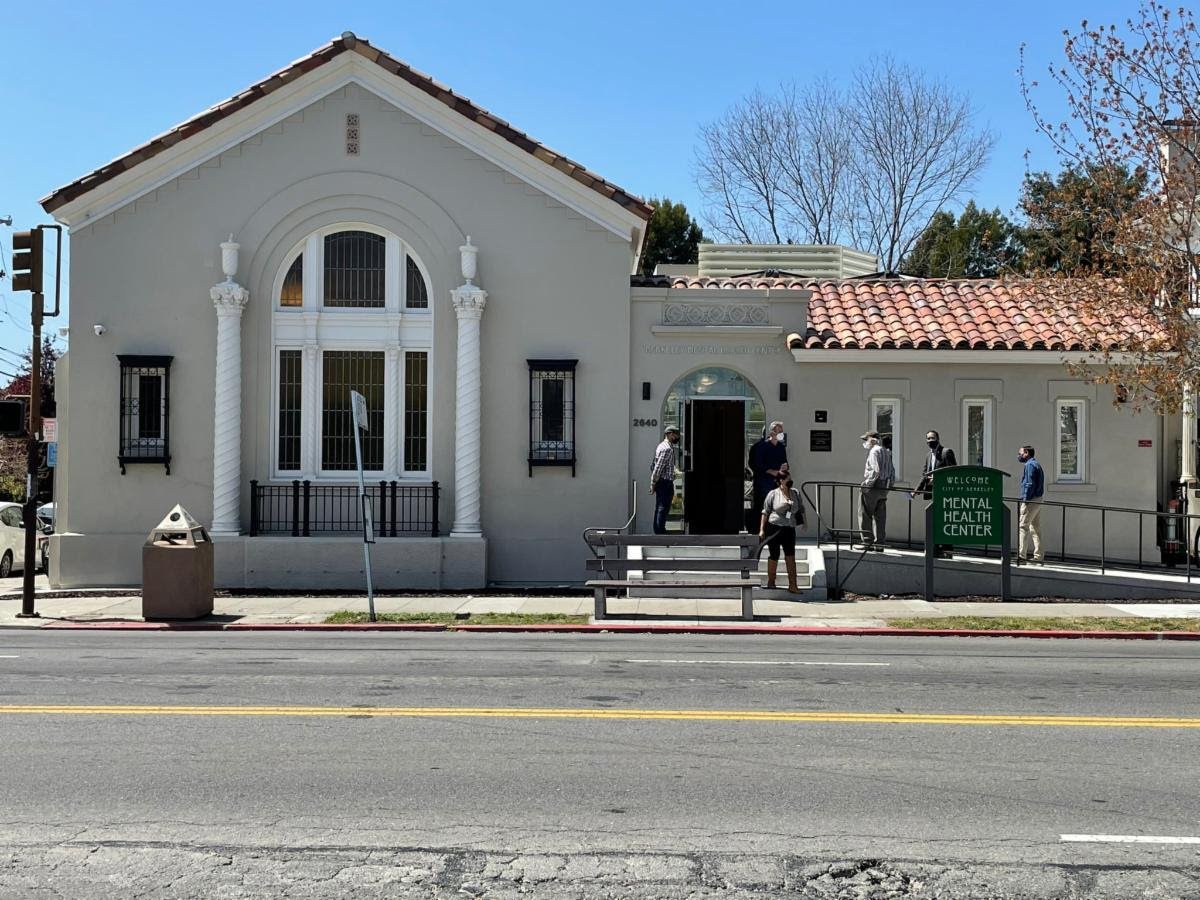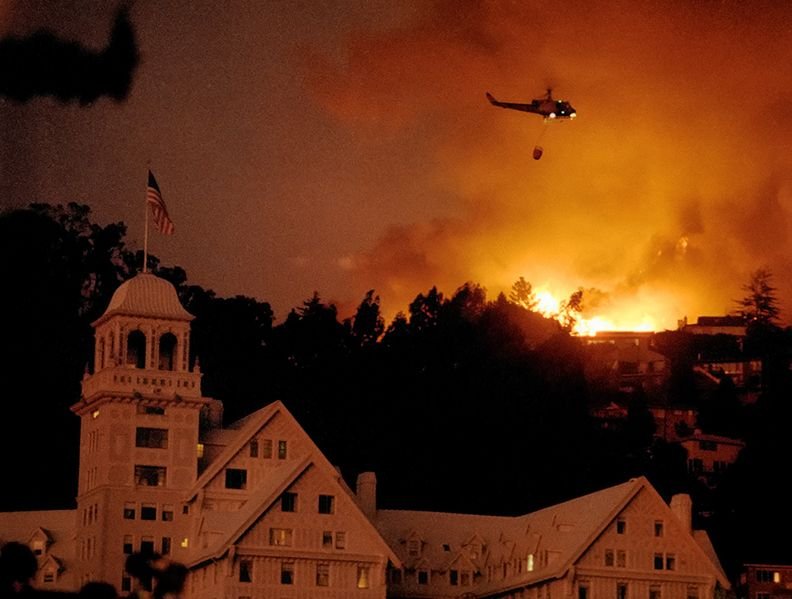Advancing Green Infrastructure, Addressing Gun Violence, COVID-19 Updates, and More Berkeley News
Rebuilding Berkeley’s Infrastructure
The Mental Health Center is one of many public buildings that have been renovated in recent years.
In 2016, Berkeley voters overwhelmingly approved Measure T1, a bond measure to fix and replace our aging infrastructure. Since then, dozens of projects have been completed through bond funds as well as other capital projects funded from annual capital plans and grant funding. Completed projects include: paving 11 miles of road, replacing 17.2 miles of sewer, renovating 10 Berkeley playgrounds, making 3,600 repairs to sidewalks, Aquatic Park tide tube repairs, improved bicycle lanes and renovating important facilities including Adult Mental Health, North Berkeley Senior Center, Live Oak Community Center, the Berkeley Rose Garden, our public swimming pools, and new regulation pickleball courts. These capital improvement projects help maintain, improve, and add to the long-term infrastructure of our city and improve the health and quality of life of our community.
The real-time climate change impacts we are experiencing have placed extra emphasis on incorporating resilient and environmentally friendly technologies into our infrastructure. In 2018, Berkeley voters supported the creation of Vision 2050, a 30-year plan to identify and guide implementation of climate-smart, technologically-advanced, integrated and efficient infrastructure. Since then, a task force of over 40 community members prepared a framework to implement Vision 2050, which was approved by Council in September 2020.
Over the next three years, multiple projects that address climate impacts will be completed. This includes advancing complete street infrastructure and pedestrian/bicycle improvements, approving the Berkeley Marina Area Specific Plan, an additional 6,000 sidewalk repairs, installation of new green and stormwater infrastructure, building new public restrooms, and much more. For a more comprehensive list of completed projects and upcoming projects, read the Capital Improvements Projects report.
Despite the much needed investments in recent years, further investment is required to ensure that our infrastructure will be adequate for the next generation. By planning for the long-term viability of our infrastructure now, we can be prepared for tomorrow’s challenges. I look forward to providing you updates in the coming months on how we will continue advancing improvements to our infrastructure in a way that meets the needs of a growing population and a changing climate.
Addressing Gun Violence
Berkeley Police recovered this gun at an armed robbery earlier this year. The suspect was arrested and the victim had their belongings recovered.
Like many Berkeley residents, I have been deeply concerned and troubled by the rise in gun violence, as exemplified in several high-profile cases in recent months. All of these incidents are under active investigation. While trends in Berkeley are reflective of a nationwide increase in gun violence, we will not sit back. Everyone deserves the right to live in a community where we feel safe. To that end, we are working on a series of actions that will have long-term benefit. This includes hiring new personnel for data analysis and setting up a Problem-Orientated Policing Unit, establishing more neighborhood-orientated bike and foot patrols, and an upcoming ordinance prohibiting “ghost guns” (privately manufactured firearms) that will be discussed at the September 27th Public Safety Policy Committee. Your safety is our imperative, and I am committed to working to address gun violence.
The public safety reimagining process is underway, and when complete, this will make our Police Department more efficient in addressing serious crimes. For example, it is well known that mental health calls, that do not pose an immediate health and safety risk, make up a significant number of calls to BPD. Creating a Specialized Care Unit to respond to non-criminal police service calls, will free up time for officers to focus on issues that are criminal activity, such as gun violence. There are multiple City departments and a team of community volunteers involved in the implementation of this process. The National Institute of Criminal Justice Reform (NICJR) has been engaged to conduct research, analysis, and use its expertise to guide the process and make recommendations for community safety and police reform. Through this process, the City will achieve a new and transformative model of positive, equitable and community-centered safety for Berkeley.
COVID-19 Updates and Health Orders
Proof of vaccination is now required to enter various Berkeley establishments.
COVID-19 cases in Berkeley have been on the decline since the peak of the Delta surge, the fourth COVID-19 wave, in late August. As of September 21st, there have been 4,820 cases, with an average of 10 cases a day. There was no surge experienced from the Labor Day weekend or the return of classes at UC Berkeley and BUSD. The lowering of cases in recent weeks, despite the return of schools, can be attributed in part to the implementation of the new Health Order described below. However, with the winter season approaching, the possibility of a fifth wave remains. Following health orders and social distancing protocols, along with getting vaccinated, remains the most effective way at reducing spread and protecting our community.
As of September 10th, businesses, nonprofits and other organizations engaged in the following activities must require proof of full vaccination and a photo ID before a patron may enter any indoor area:
Places serving food or drinks, such as restaurants, bars, clubs, theaters, and entertainment venues.
Places where patrons do cardiovascular, aerobic, strength training, or other exercise involving elevated breathing, including gyms, recreation centers, fitness clubs, and strength training facilities.
Large indoor events of 1,000 people or more - except where tickets were sold before September 3, 2021
On September 14th, the Council approved a policy to have City employees partly vaccinated by October 15th and fully vaccinated by November 15th, with limited medical and religious exemptions.
This week, the FDA approved the use of a third shot of the Pfizer vaccine for individuals aged 65 and older and those who are immunocompromised. However, approval from the CDC, expected next week, must be granted before doses can be administered. At this time, booster shots for those who received the Moderna or J & J vaccine has not been recommended. Do not seek a booster shot unless you are qualified to do so.
We will be hosting a COVID-19 Town Hall on October 4th at 6pm. Submit your questions here. Stay tuned for details.
Permit Service Center Improvements
The online permit service center has been revamped to make it easier and more user friendly.
The Planning & Development Department recently made improvements to the online services provided by the Permit Service Center. Community members can now submit a new building permit application and pay for all building permits online, as well as schedule an appointment online to visit the PSC in person. Additionally, the Planning department has released a customer service survey for the month of September 2021 to assess the efficacy of these new online services.
To submit a building permit application or pay for a building permit, visit the Online Service Center, click the “Building Permits” tab and “Create an Application. You can also make an appointment for an in-person meeting at the Permit Service Center by clicking this link.
Oakland Hills Firestorm 30th Anniversary
October 19-20th marks the 30th anniversary of the Oakland Hills Firestorm, which killed 25 people and destroyed 2,843 single-family homes and 437 apartment units across north Oakland and southeast Berkeley. Several events are taking place next month to commemorate this event:
October 2nd, 10am: Gathering at the Firestorm Tile Memorial at the Rockridge BART Station. The wall of 2,300 tiles that tells the story of the lives lost, fire, its aftermath and the reliance of the community to rebuild.
October 17, 11am-3pm: Community comeback picnic at Lake Temescal. Celebrate community with neighbors, friends and family while honoring the 30th anniversary of the 1991 Oakland/Berkeley Firestorm. Free to attend. Food Trucks, Music, all are welcome. Details here.
October 20, 5pm-6:30pm: The 30th Annual Tree of Hope Lighting Ceremony at 4949 Grizzly Peak Blvd. For the past 30 years, Russ and Annette Aubry and a team of dedicated volunteers have lit the Tree of Hope on their property from a week before Christmas until New Years' Day. It can be seen from highway 24. Originally, a 30-foot tall Cyprus was donated to the community in 1991 as a way to bring hope to survivors. When the tree died after the second year, Russ and his son installed a 30 foot flag pole and rigged up a number of halyards so they could recreate a "tree" with 1200 tree lights. An entire generation has grown up with the holiday tradition of spotting the tree from the city below.
Affordable Housing Artist Survey
Are you an artist or a cultural worker who currently lives or works in Berkeley? Are you an artist or cultural worker who has been displaced from Berkeley within the last 5 years? The City’s Civic Arts program is conducting a survey related to affordable housing needs of Berkeley's artists and cultural workers. The survey, which takes less than 10 minutes, has been extended to September 30th. This will allow us to identify risks specific to Berkley’s arts and culture sector and develop strategies to preserve and create affordable housing solutions for the arts community. To take the survey, click here. For additional information, click here.




